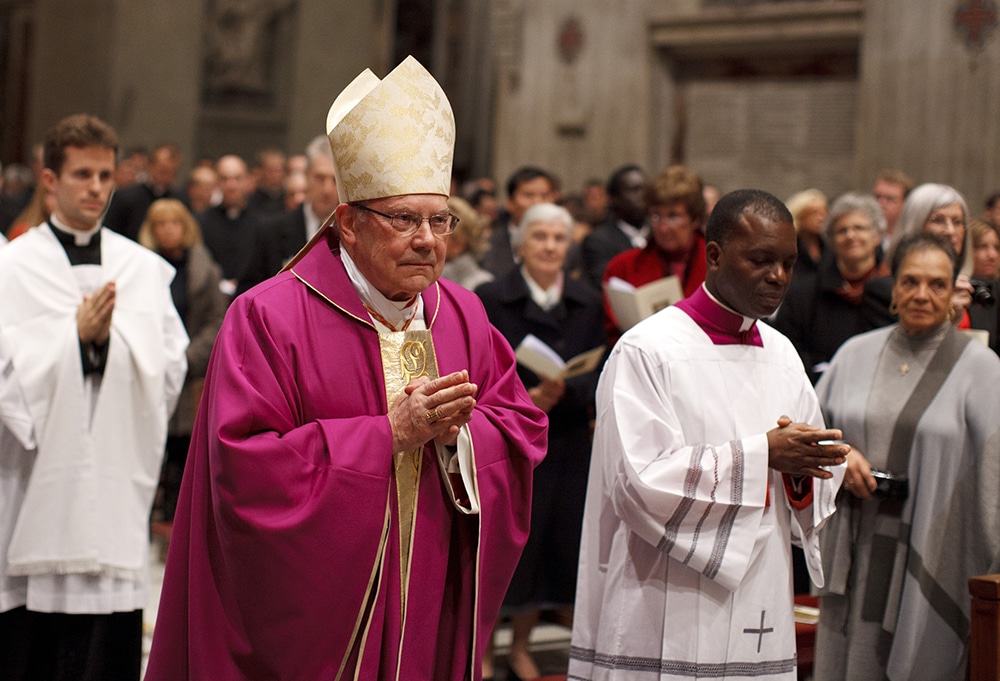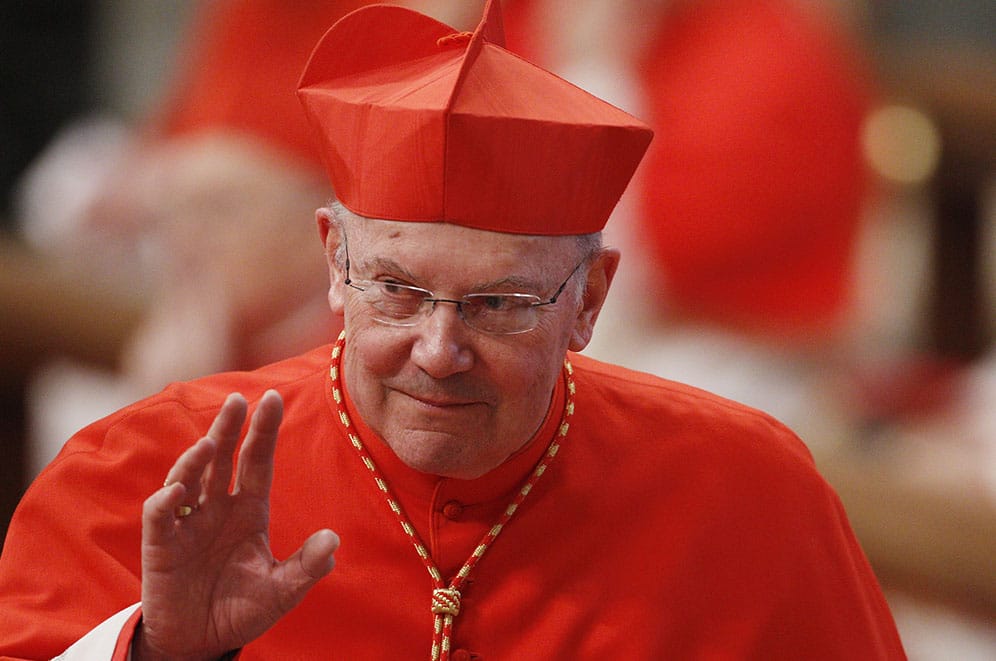Cardinal William Levada, who died Sept. 26 in Rome, was precise in speech and reserved in demeanor — someone might even say a bit stuffy. But beneath that professorial exterior lay a puckish sense of humor. Here’s one example.
When Pope Benedict XVI, who as Joseph Ratzinger was recognized as one of the foremost Catholic theologians of the day, asked the then-Archbishop Levada to succeed him as head of the Vatican’s doctrine office, his first thought was “I’m no Ratzinger.”
But a little later, he told friends, he had a second thought: “After all, I’m not a ____ either” — naming a high-ranking Roman prelate no one ever accused of being overly smart.
Needless to say, he took the job.
Early ministry
Although Cardinal Levada had held a number of top positions in the Church in the United States, it was appropriate that death came for him — at the age of 83 — in Rome, where he had spent much of his life studying and then working for the Vatican.
A native of Long Beach, California, whose great-grandparents were from Portugal and Ireland, he studied for the priesthood at the North American College and the Gregorian University, both in Rome, and was ordained there in St. Peter’s Basilica in 1961. Following pastoral work and teaching in Los Angeles, he returned to Rome as a member of the staff of the Congregation for the Doctrine of the Faith, commonly known by its initials as the CDF.
After six years there, he returned to the United States — first as executive director of the California Catholic Conference, then as an auxiliary bishop of Los Angeles. In 1986 he was named archbishop of Portland, Oregon, and in 1995 archbishop of San Francisco, succeeding the scholarly Archbishop John R. Quinn.
In San Francisco he clashed with gay-friendly city authorities over LGBT issues. In 1997, when the city adopted a law requiring businesses to provide domestic partner benefits to same-sex and cohabiting couples — a move that would have put many Church-related enterprises out of business — he dealt with the situation by allowing unmarried employees of the archdiocese to designate anyone in their households a “domestic partner” regardless of their relationship.
In 2005 he led a protest march against same-sex marriage. The following year he cautioned the archdiocese against placing adopted children with gay couples. That stand earned him the epithet “insulting and callous” from the San Francisco Board of Supervisors.
Career within the CDF
By then, however, he was back in Rome as prefect of the CDF. The post also carried with it the presidency of the Pontifical Biblical Commission and the International Theological Commission, as well as the task of overseeing the handling of cases of clergy sex abuse of children. Pope Benedict named him a cardinal in March 2006.
Speaking of his position with the CDF, Cardinal Levada once said, “If you are working for the Congregation for the Doctrine of the Faith, it helps to have a pretty thick skin so that you aren’t overly sensitive if you are criticized.”
That was eminently true in 2009 when he ordered a review of the U.S. Leadership Conference of Women Religious, a generally liberal group, and the CDF released a statement speaking of “serious doctrinal problems which affect many in consecrated life.”
Also in 2009 — and on a more positive note — he announced the pope’s decision to allow the creation of “personal ordinariates” in which former Anglican clergy and laity could become Catholics while retaining their corporate identity and some elements of Anglican liturgy. Three such ordinariates now exist, including one in the United States.
But the most notable project with which he was associated was the Catechism of the Catholic Church. Starting in the 1980s, he served as part of the team that drafted the document, the first general catechism of the Catholic Church to be created in four centuries. Published in 1992, the Catechism stands as one of the hallmarks of the pontificate of Pope St. John Paul II.
It was an undertaking close to the heart of Cardinal Levada, as became clear during a bishops-only meeting in the United States at which a prominent theologian ripped into an early draft of the Catechism, even hinting that those responsible might have been trying to undermine the project.
The speaker did not know Cardinal Levada was in the room. When he finished, the cardinal rose to speak. Struggling to control his emotions, he said that although the drafters welcomed criticism, he could not accept the suggestion that they wanted to do anything but serve the Church.
He retired as prefect of the CDF in 2012. Serving the Church — that was his long career in a nutshell.
Russell Shaw is a contributing editor for Our Sunday Visitor.


